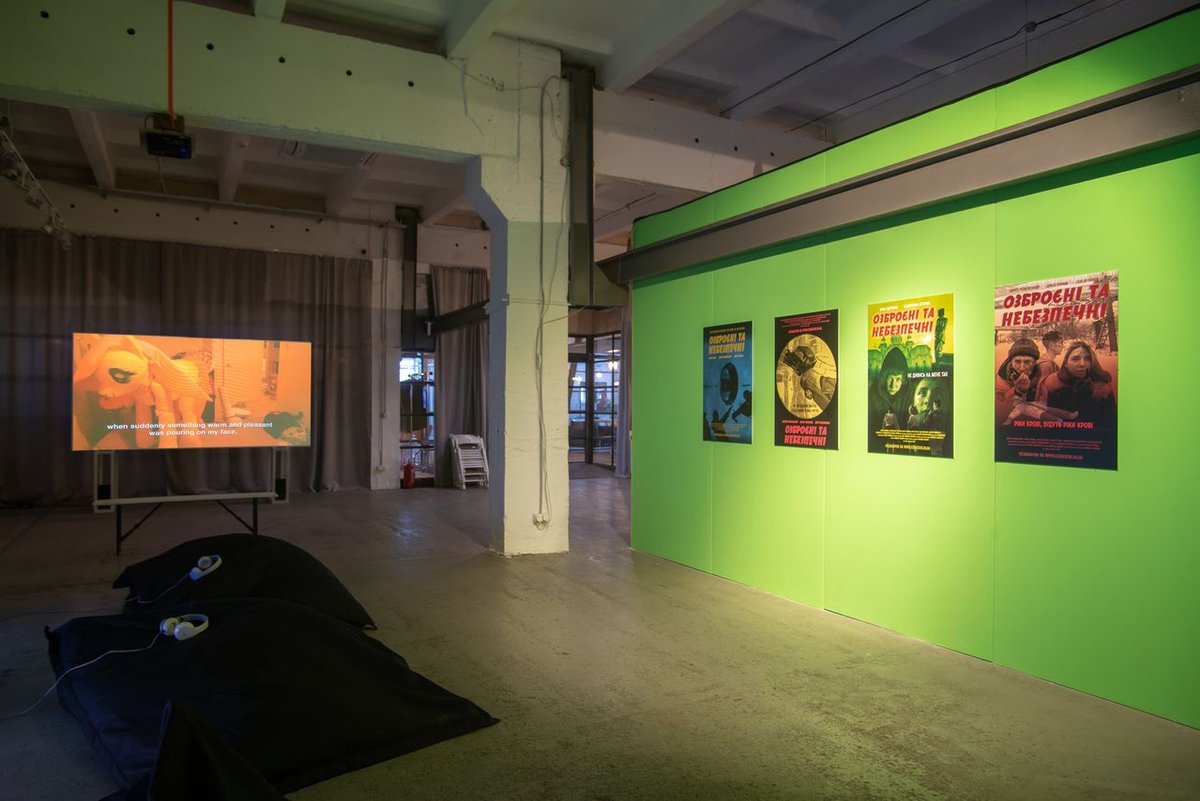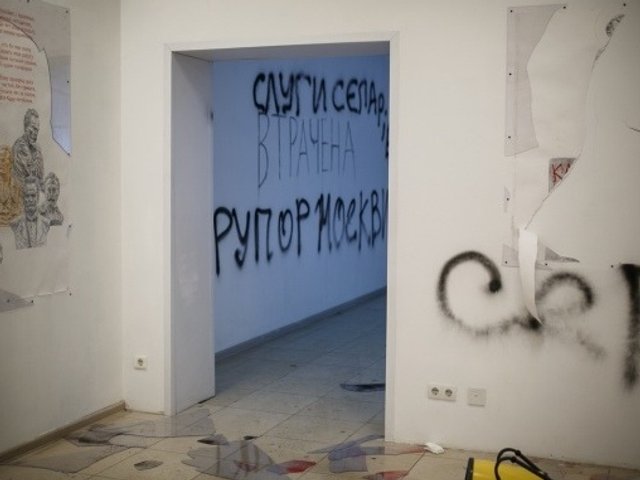Izolyatsia, a Ukrainian arts centre that was forced to leave its original home in Donetsk in 2014 due to the conflict with Russian-backed separatists, has now found itself the target of Ukrainian nationalists in its new home of Kiev.
A group of men with right-wing affiliations verbally disrupted a lecture organised by the arts centre on 7 February and painted swastika symbols on chairs. The lecture was being given by Anna Hrytsenko, a researcher on far-right movements, and was part of a programme of events attached to Izolyatsia’s current Armed and Dangerous exhibition (until 17 March), which addresses the militarisation of Ukrainian society.
A video of the disruption, released by Izolyatsia, shows a number of men shouting and chanting slogans while Hrytsenko was attempting to give the lecture. Members of the audience said that between 20 and 40 men were involved and that they outnumbered those who had come to listen to Hrytsenko speak. Mykola Ridnyi, the curator of Armed and Dangerous, said in a statement released by Izolyatsia that police officers were present outside the venue but that, in the absence of physical violence, they chose not to intervene.
The disruption of the lecture comes amid a rising tide of aggressive right-wing activity in Ukraine. Only three days later, on 10 February, right-wing activists clashed with police in Kiev, resulting in dozens of arrests. Such events are taking place in parallel to a more mainstream nationalistic movement in Ukrainian society since the revolution in 2014.
Izolyatsia’s Armed and Dangerous exhibition brings together artists who reflect on how this militaristic posturing affects Ukrainian society and the attitude of the country’s youth towards violence and weapons.
The contemporary arts centre, which was housed in a former Soviet-era insulation factory in Donetsk, eastern Ukraine, was seized by Russia-backed separatist fighters in 2014. Shortly after the centre moved to its current location in Kiev, rebel fighters blew up an installation by the Cameroonian artist Pascale Marthine Tayou on the art centre’s grounds and used other pieces as shooting targets. The building is now a prison and interrogation centre.
Izolyatsia says that members of the ultra-nationalist paramilitary organisation C14 (Sich) and the right-wing protest movement National Resistance were among those who disrupted Hrytsenko’s lecture. Demyan Romanovich, a member of the audience, said in Izolyatsia’s statement that representatives of the nationalist political party Svoboda, which currently has six seats in the Ukrainian parliament, were also present.
According to Izolyatsia, a criminal charge has been filed against Hrytsenko following her lecture by representatives of unnamed “right-wing organisations” under Article 161 of the Criminal Code of Ukraine, which is intended for the prosecution of hate crimes. In recent years, far-right extremists have themselves been subject to charges under this law for violent attacks on Ukraine’s Roma community, as well as LGBT targets.





